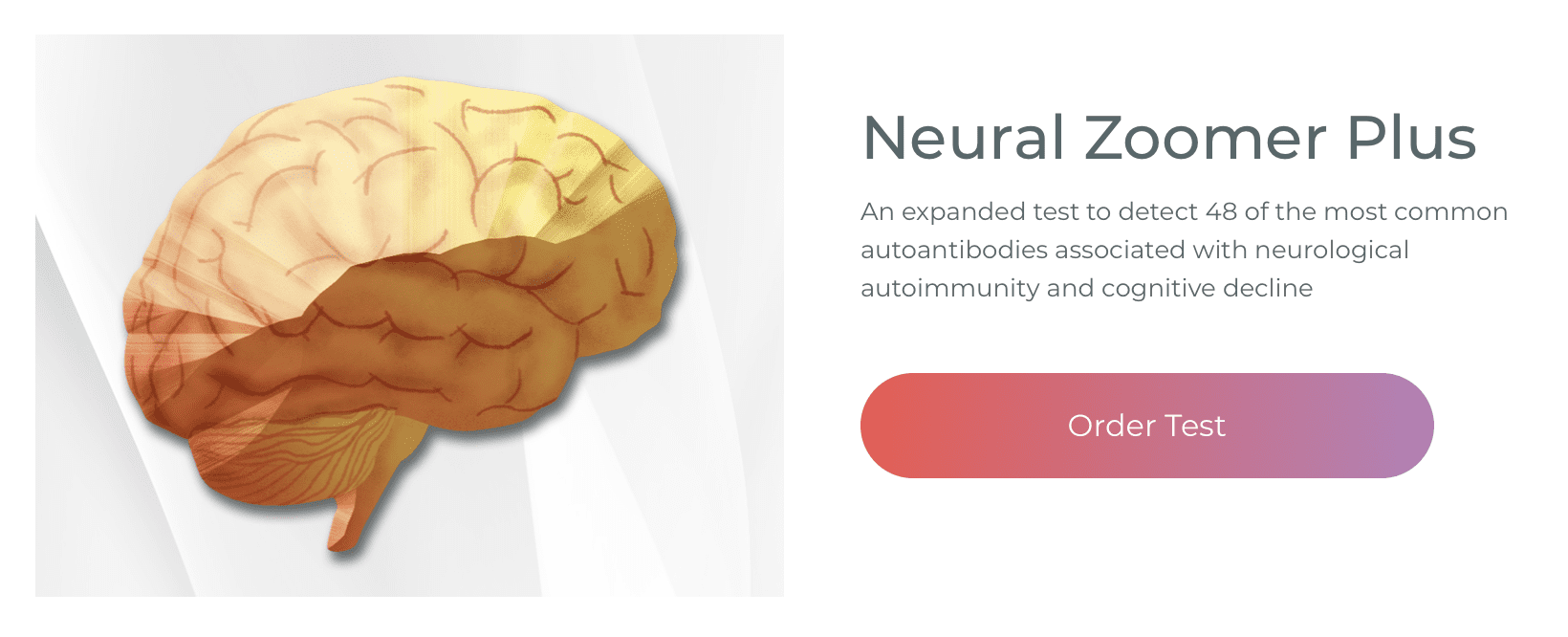Do you have low brain endurance when it comes to focus and concentration? Do you often feel like you must drink coffee or exercise to improve brain function? Have you been experiencing noticeable variation in your mental speed? How often do you pick up your smartphone and forget why? Many women commonly struggle to remember everyday tasks throughout their 40's and 50's. Research studies have determined that menopause is a prevalent cause of brain fog in women.
What is Menopause Brain Fog?
Many women between the ages of 40 and 50 may be going through menopause or the end of their menstrual cycles. Symptoms may vary for every woman and these can range from thinning hair to weight gain to night sweats. Many other women may also have general forgetfulness or “brain fog” which can ultimately make it hard for them to concentrate.
During one research study, healthcare professionals found that about 60 percent of middle-aged women had trouble focusing or concentrating and other health issues associated with cognitive problems. These health issues increased in women going through perimenopause. Perimenopause is the stage before the menstrual cycle stops entirely.
The women in the research study also reported experiencing subtle changes in memory but researchers believe that a “negative effect” may have worsened these symptoms. The researchers also found that women going through menopause generally experience negative changes in mood and other memory problems. Moreover, the research study found that brain fog may also be associated with sleep issues and other vascular symptoms associated with menopause like hot flashes.
Another research study also found that women in the early stages of menopause may experience more noticeable cognition problems. Women during the first year of their last menstrual period scored the lowest on tests evaluating:
- attention
- memory
- verbal learning
- working memory tasks
- motor function
Memory for the women improved over time, which is the opposite of what the researchers had initially hypothesized. Furthermore, healthcare professionals believe that midlife brain fog in women may be associated with hormonal changes.
Estrogen, progesterone, follicle-stimulating hormone, and luteinizing hormone, are all responsible for different processes in the human body, including brain function. Perimenopause lasts an average of 4 years, during which time the hormone levels may ultimately fluctuate wildly and cause a variety of symptoms as the mind and the body adjust to these hormonal changes.
Brain Fog and Alzheimer's Disease in Women
Memory problems during menopause can be completely normal. You may forget where you placed your smartphone or you may have trouble remembering an old coworker's name. However, if your cognitive problems begin to negatively affect your everyday life, it may be best for you to see your healthcare professional immediately to receive a proper diagnosis.
Dementia is another well-known health issue that may also cause brain fog. Alzheimer’s disease is the most prevalent cause of dementia in older women. It generally starts with trouble remembering things as well as difficulty organizing thoughts. Unlike the brain fog associated with menopause, Alzheimer’s disease is a health issue that progressively worsens over time.
Other common symptoms associated with Alzheimer’s disease and dementia include:
- trouble finding the right words to identify different objects
- repeating questions or statements over and over
- difficulty making decisions
- difficulty performing daily tasks
- changes in mood, personality, or behavior
- getting lost, even in familiar places
Menopause Brain Fog Treatment
Menopause brain fog may be moderate and may go away on its own over time. Severe memory health issues may cause you to neglect your personal hygiene, forget the name of familiar objects, or even have difficulty following directions.
Once your healthcare professional has ruled out other health issues like dementia and Alzheimer's disease, you may explore menopausal hormone therapy (MHT). This treatment involves taking low-dose estrogen or a combination of estrogen and progestin. These hormones may help with other symptoms you may experience during menopause, not just memory loss.
According to healthcare professionals, however, long-term use of estrogen may increase the risk of breast cancer, cardiovascular disease, and other health issues. Speak with your doctor to see if this type of treatment is right for you.
Menopause Brain Fog Prevention
While you may not be able to prevent the brain fog associated with menopause, there are several lifestyle modifications you can do to help you ease into your symptoms as well as to help improve your memory and overall health and wellness.
Eat a Balanced Diet
A balanced diet that’s rich in low-density lipoprotein (LDL) cholesterol and fat may be bad for both your brain and your heart. Instead, try a balanced diet that's rich in whole foods and healthy fats. The Mediterranean diet, by way of instance, may help with brain health because it’s rich in omega-3 fatty acids and other unsaturated fats. Good food choices include:
- fresh fruits and vegetables
- whole grains
- beans and nuts
- olive oil
- fish
Exercise the Body
Getting regular exercise and/or physical activity is recommended for all people, including women going through menopause. Researchers and healthcare professionals believe that exercise may even help with brain fog and other memory problems.
Get Enough Sleep
Your quality of sleep may affect brain fog. With sleep problems high on the list of symptoms associated with menopause, getting enough sleep can be a tall order. As a matter of fact, 61 percent of postmenopausal women report having insomnia.
According to research studies, hormonal changes in women going through menopause can cause brain fog and other memory health issues. However, these memory as well as cognition problems associated with hormonal changes and menopause, may ultimately improve on their own over time. Several treatment and prevention options can help ease menopause brain fog. If brain fog symptoms become worse, a doctor can help rule out other health issues like Alzheimer's disease and dementia, among others. - Dr. Alex Jimenez D.C., C.C.S.T. Insight
In honor of Governor Abbott's proclamation, October is Chiropractic Health Month. Learn more about the proposal.
Do you have low brain endurance when it comes to focus and concentration? Do you often feel like you must drink coffee or exercise to improve brain function? Have you been experiencing noticeable variation in your mental speed? How often do you pick up your smartphone and forget why? Many women commonly struggle to remember everyday tasks throughout their 40's and 50's. Research studies have determined that menopause is a prevalent cause of brain fog in women.
The scope of our information is limited to chiropractic, musculoskeletal and nervous health issues or functional medicine articles, topics, and discussions. We use functional health protocols to treat injuries or disorders of the musculoskeletal system. To further discuss the subject matter above, please feel free to ask Dr. Alex Jimenez or contact us at 915-850-0900 .
Curated by Dr. Alex Jimenez
Additional Topic Discussion: Chronic Pain
Sudden pain is a natural response of the nervous system which helps to demonstrate possible injury. By way of instance, pain signals travel from an injured region through the nerves and spinal cord to the brain. Pain is generally less severe as the injury heals, however, chronic pain is different than the average type of pain. With chronic pain, the human body will continue sending pain signals to the brain, regardless if the injury has healed. Chronic pain can last for several weeks to even several years. Chronic pain can tremendously affect a patient's mobility and it can reduce flexibility, strength, and endurance.
Neural Zoomer Plus for Neurological Disease
Dr. Alex Jimenez utilizes a series of tests to help evaluate neurological diseases. The Neural ZoomerTM Plus is an array of neurological autoantibodies which offers specific antibody-to-antigen recognition. The Vibrant Neural ZoomerTM Plus is designed to assess an individual’s reactivity to 48 neurological antigens with connections to a variety of neurologically related diseases. The Vibrant Neural ZoomerTM Plus aims to reduce neurological conditions by empowering patients and physicians with a vital resource for early risk detection and an enhanced focus on personalized primary prevention.
Formulas for Methylation Support
XYMOGEN’s Exclusive Professional Formulas are available through select licensed health care professionals. The internet sale and discounting of XYMOGEN formulas are strictly prohibited.
Proudly, Dr. Alexander Jimenez makes XYMOGEN formulas available only to patients under our care.
Please call our office in order for us to assign a doctor consultation for immediate access.
If you are a patient of Injury Medical & Chiropractic Clinic, you may inquire about XYMOGEN by calling 915-850-0900.
For your convenience and review of the XYMOGEN products please review the following link. *XYMOGEN-Catalog-Download
* All of the above XYMOGEN policies remain strictly in force.








